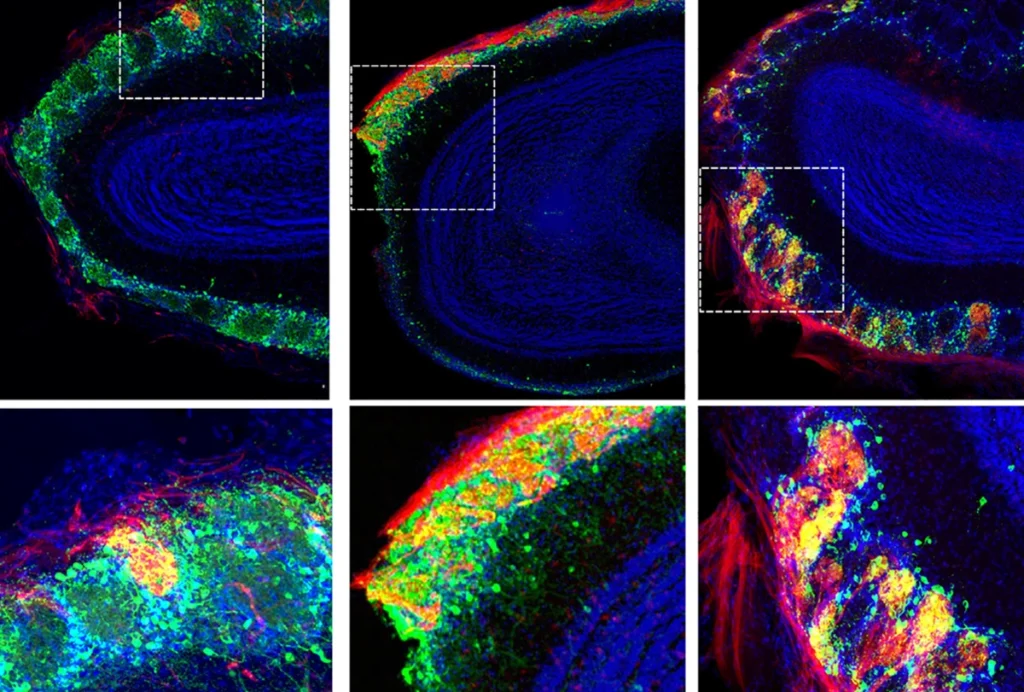Drug dangers; allergy risk; science #MeToo and more
A prospective study shows that antipsychotics mess up metabolism, autism is tied to a doubled risk for food allergies, and a report reveals pervasive sexual harassment in science.
- Children with autism receive antipsychotic prescriptions at younger ages, for longer durations and more often than their neurotypical peers. These drugs, including risperidone and aripiprazole, are linked to weight gain. Now, results from a prospective randomized trial show that children taking these medications develop reduced insulin sensitivity in only 12 weeks.
The antipsychotics also are associated with abdominal fat accumulation, the researchers found. Among the three drugs investigated, olanzapine showed the strongest association with weight gain and reduced insulin sensitivity. The findings appeared 13 June in JAMA Psychiatry.
- Children on the spectrum are more than twice as likely as their typical peers to have food allergies. And boys with autism, but not girls, have greater odds of respiratory and skin allergies than controls do, according to results published 8 June in JAMA Network Open.
- Sexual harassment is pervasive in academic science and medicine, and frameworks in place to address the problem aren’t working. That’s the conclusion of a much-anticipated report from the National Academies of Sciences, Engineering, and Medicine. Sexual harassment at universities and colleges is much more common in science and medicine than in other fields, and its effects on those who experience it are long-lasting and profound, STAT reported 12 June.
Some of those affected ended up avoiding professional meetings or leaving research projects or jobs. They described feelings of mortification, outrage and devastation, STAT reported, yet many feared retaliation if they made a formal complaint, so they did not do so.
- A meta-analysis has identified a 35 percent increase in a child’s odds of having autism and a 29 percent increase in his odds of having attention deficit hyperactivity disorder (ADHD) if the mother had a disorder involving high blood pressure during pregnancy, according to results published 6 June in JAMA Psychiatry.
- Stymied by ethics hurdles and dwindling numbers of primate facilities, researchers from some major U.S. institutions maintain study animals in China, which allows genetic engineering of primate species. The genetically engineered animals include macaques lacking SHANK3, a gene implicated in autism, The Atlantic reported 8 June.
Within the United States, the only way to study SHANK3 in primates is through a monkey colony in Puerto Rico in which one in eight animals has a naturally occurring variant.
- A study published 8 June in Pediatric and Perinatal Epidemiology suggests there is no link between head circumference and autism. But the researchers do report an association between ADHD and head sizes at birth that are at the small end of the normal range.
- The modern anti-vaccine movement takes its motivation in part from debunked claims linking measles, mumps and rubella vaccination with autism. U.S. states with high rates of ‘nonmedical exemption’ from vaccination have lower uptake of this vaccine among kindergartners than other states do, researchers reported 12 June in PLOS Medicine.
Hotspots of anti-vaccine activity include Seattle, Houston and Detroit, among other cities, making them vulnerable to outbreaks, the investigators say.
- Family support matters to the job and educational success of people with autism or ADHD. People with either condition who have a disruptive family life have a worse life trajectory than those with a supportive family, say researchers publishing 7 June in the Journal of Autism and Developmental Disorders.
- Results are mixed on an association between autism and antidepressant exposure in the womb, but what about paternal use of antidepressants? This use does not factor into a child’s odds of autism at the time of conception, say researchers publishing 8 June in BMJ.
- The cells in a few drops of blood can be reprogrammed into tens of thousands of neurons in only a few weeks, writes Stanford University researcher Marius Wernig 8 June in The Conversation. The comparatively quick process, which requires a cocktail of only four proteins, makes it relatively easy to compare the way neurons develop in people with and without a condition such as schizophrenia or autism, he says.
- Do you have a new paper coming out? Are you making a career move? Did you see a study or news story that you want to share? Send your news tips to [email protected].
Explore more from The Transmitter

Rat neurons thrive in a mouse brain world, testing ‘nature versus nurture’
